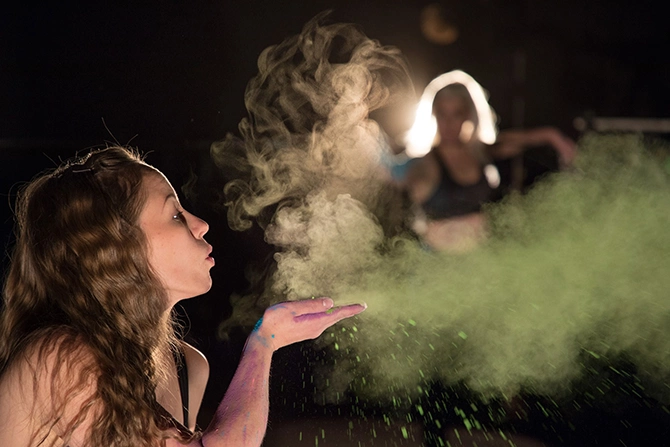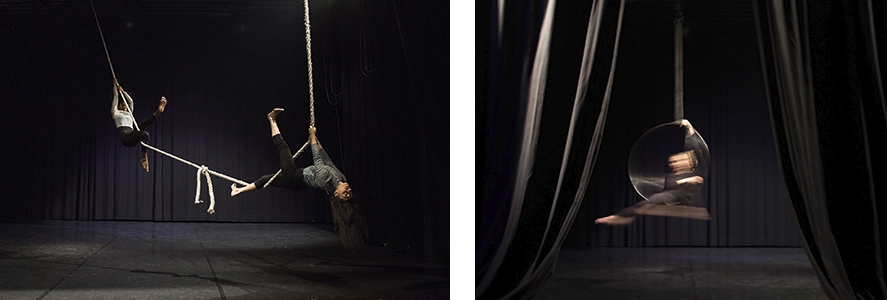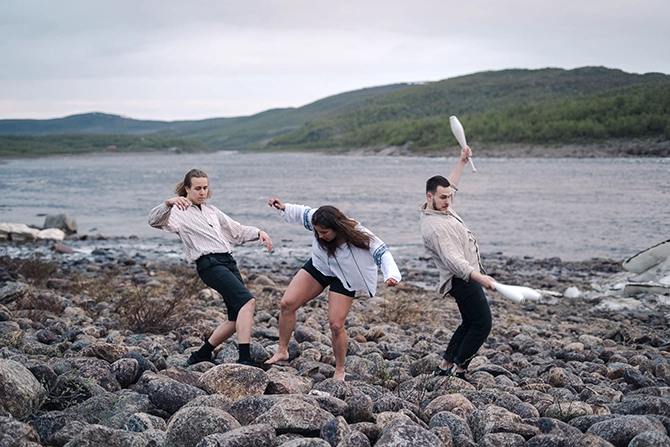27.6.2022
Interview: Vilma Pimenoff
The article is part of a series of interviews which presents various Finnish residency providers and examines the role of residencies in the field of art and in the society.

Cirko – Center for New Circus was founded in 2002 and has been based in Suvilahti district in Helsinki since 2011. Cirko’s projects take place both nationally and internationally and its work is supported by the Finnish state and by the city of Helsinki. As the most significant center for contemporary circus, a year-round residency activity forms a key part of Cirko’s function. Cirko has an annual open call for 2-3 week residencies. In addition to the residence, if a performance space becomes available, it can be offered for Cirko’s members for shorter residencies.
Cirko’s residency has an artist oriented approach. One of the main criteria for the residency is that every working group needs to include at least one contemporary circus artist who is either a Finnish citizen or Finnish resident. This enables residencies for diverse and interdisciplinary groups. The contemporary circus groups working at the residency are usually living in Finland or from Finland. However, there are also working groups that are not circus-led, but that have a contemporary circus artist in the group.

There is no academic level circus education in Finland, and for this reason the Finnish circus artists often leave to go abroad to study. On the other hand, the contemporary circus scene is global, and residencies enable a kind of circular motion – they make it possible for the Finnish artists living abroad to return to work in Finland.
Cirko’s Acting Director Jarkko Lehmus underlines diversity and critical thinking from the chosen projects. It is important to ask why the project has importance right now. What makes it relevant for the artist and for the society? Lehmus encourages artists to comment on this on their applications and hopes that the intention also shows in practice. By asking the artists what kind of idea of humanity and worldview they want to reinforce with their projects, Cirko aims to clarify artists’ thinking and foresee their practice in relation to the social situation.
There are about two-hundred circus artists in Finland, from which around 100 to 120 practice annually in Cirko’s premises. Equality and equity are emphasized in the resident artist selection process both geographically and demographically. Diverse representation of circus disciplines and comprehensive national coverage are important criteria for equality. ”Because of the relatively small size of the circus scene in Finland the organisation’s influence is important on a national level. This is also why the activity needs to be open and transparent.”

At Cirko the residency activity is part of the practice of artistic development as a whole. The intention is to offer the resident artist an opportunity for professional development by offering support with artistic thinking and practice. Both, new projects and new ways of working are born out of artistic development. The residency program used to function as a direct production line to Cirko’s repertoire, but since 2015 the residencies are profiled as process-oriented and do not have to result in a finalized performance.
Ina Niemelä, the technical producer of Cirko says that the resident artists are asked to deliver a technical plan a month before starting their residency. This gives an objective to the artist and sets pace to the practice. To be able to fully concentrate on artistic practice while at residency, Cirko makes an agreement with the artist that clarifies common rules and everyone’s areas of responsibility. Cirko supports the resident artist groups by asking questions and offering dialogue. ”From the point of view of a dramaturge all the propositions I make are in the form of questions. The decision is always with the artist.” Cirko’s Actg. Director Jarkko Lehmus concludes.
More Information: Cirko Residencies

